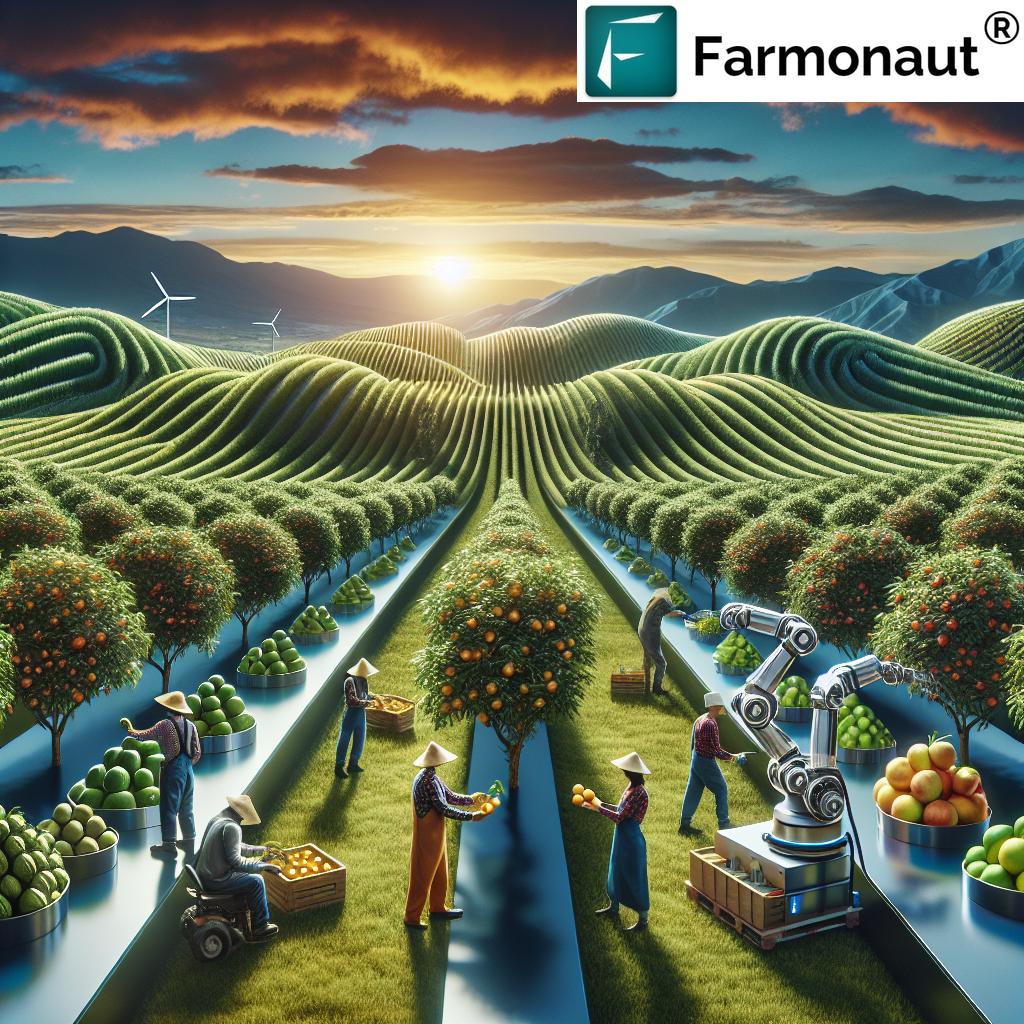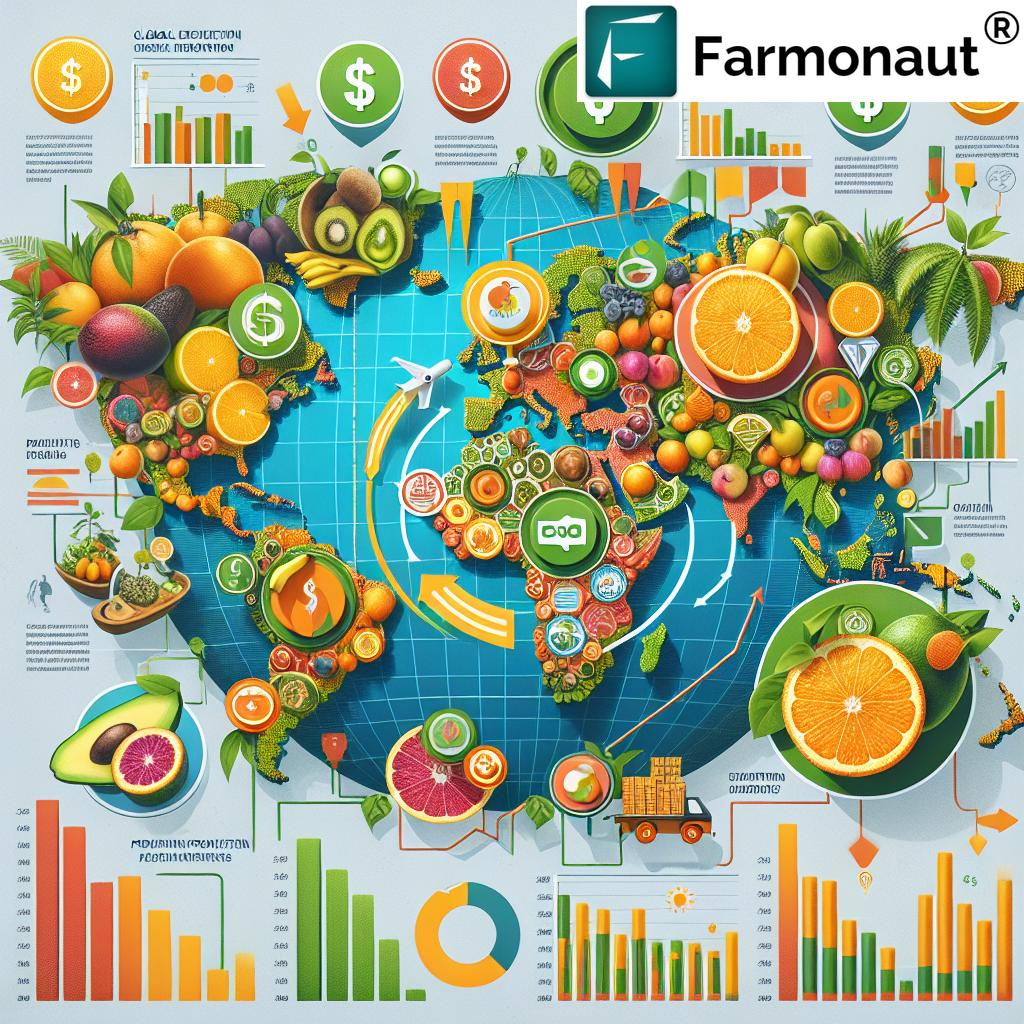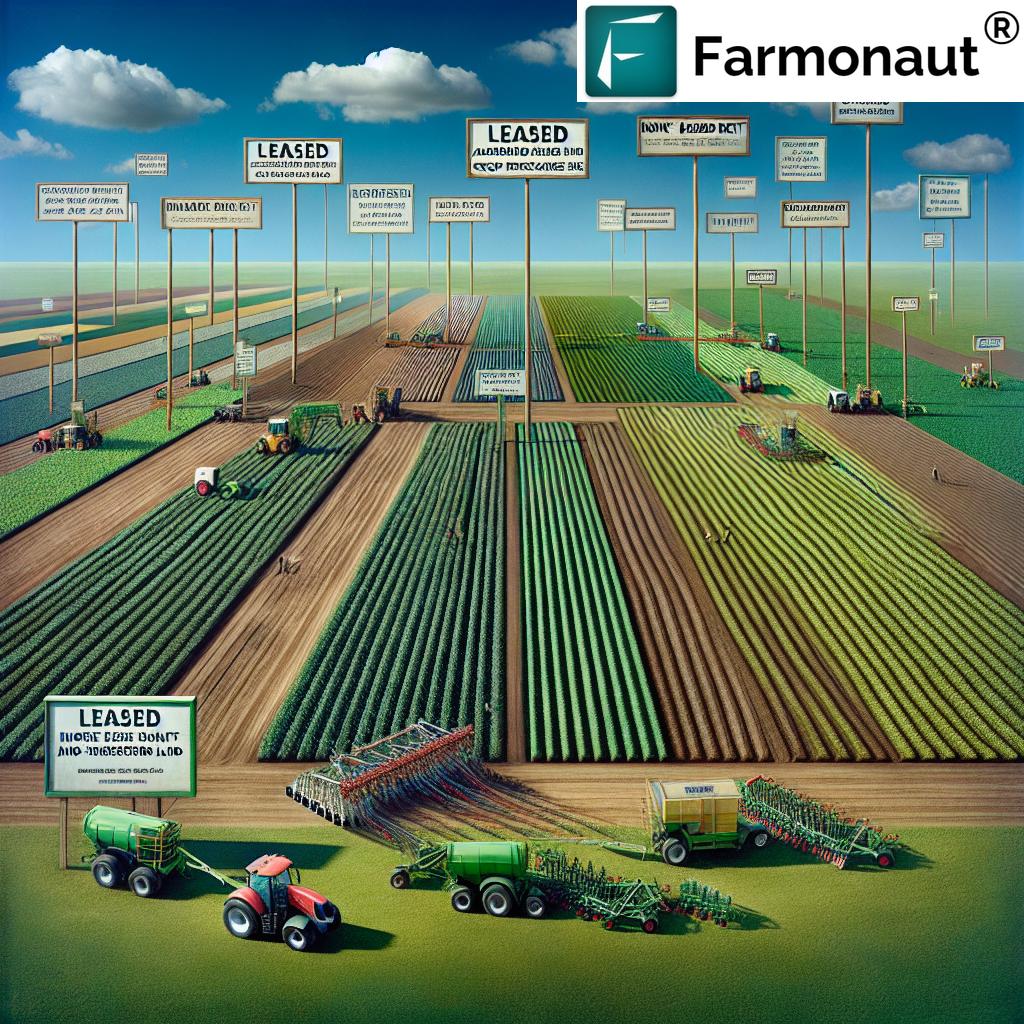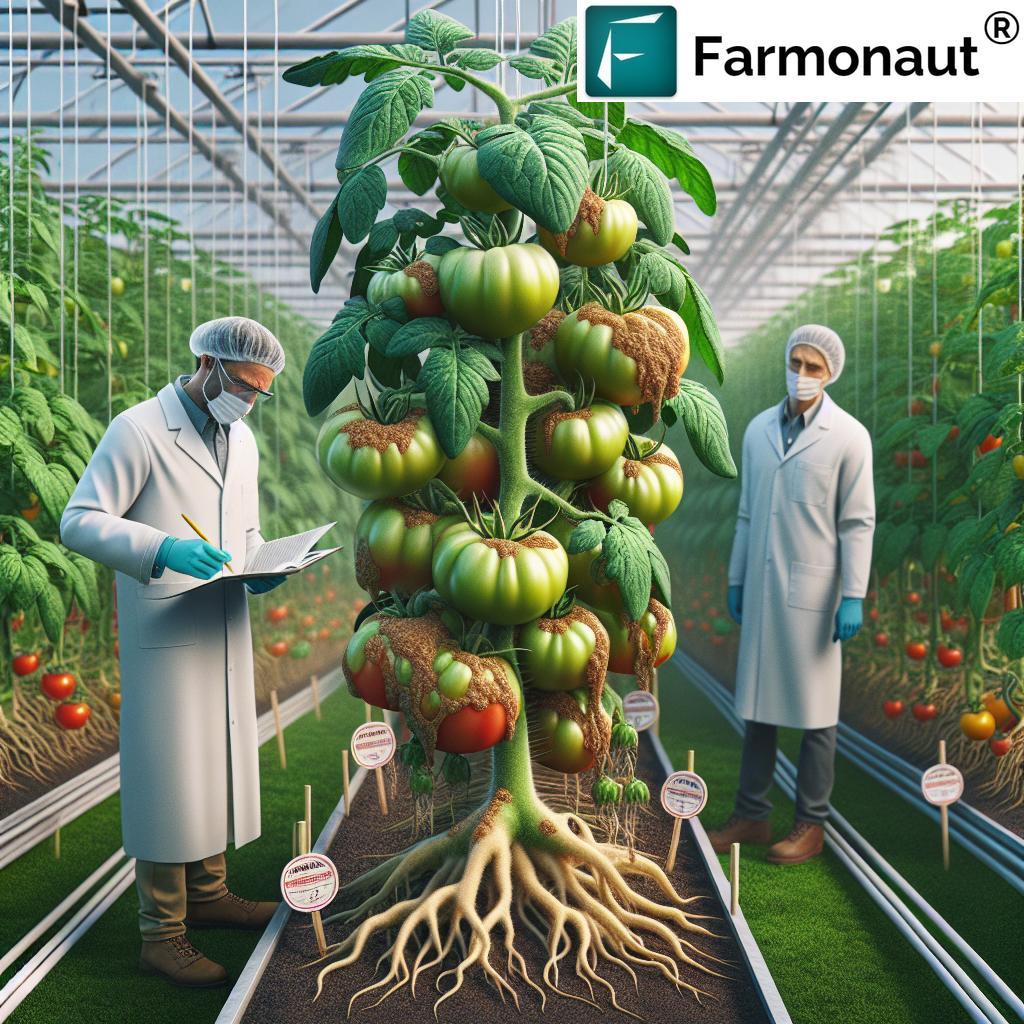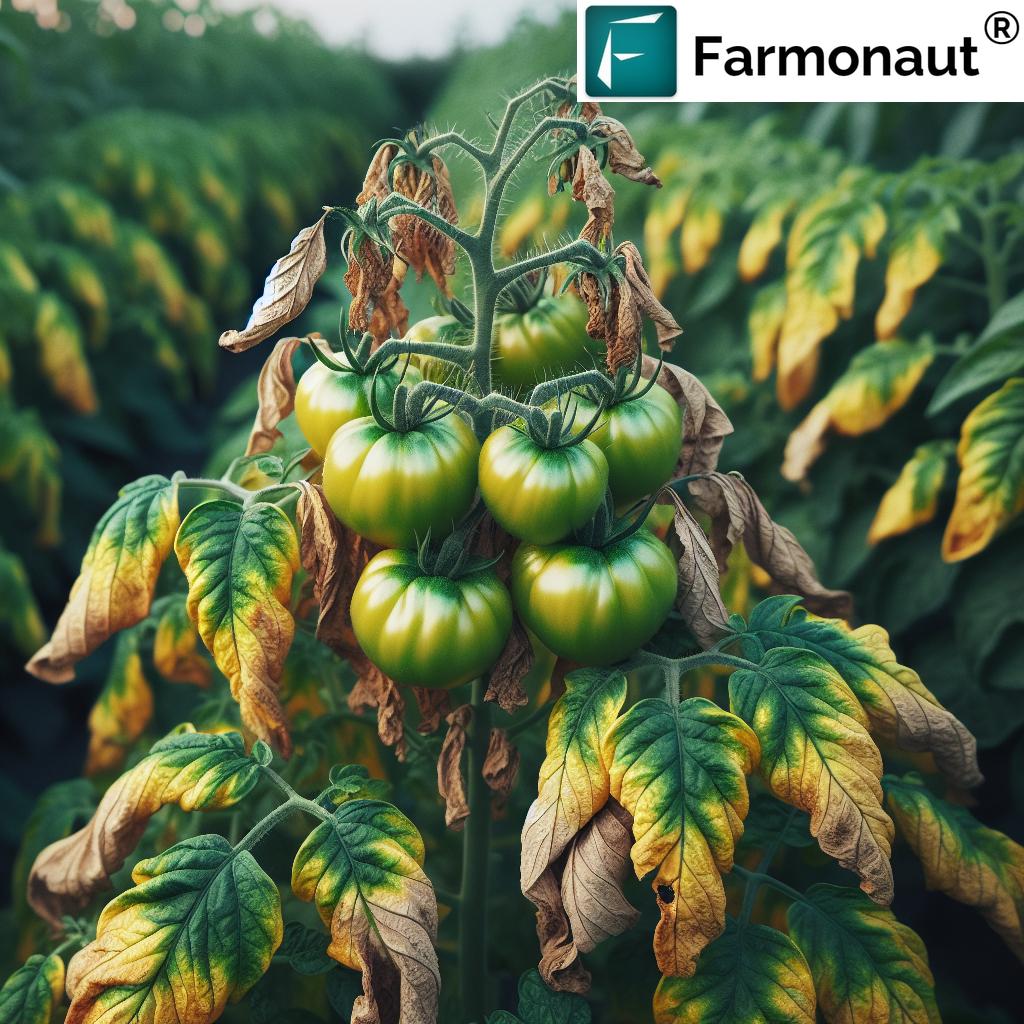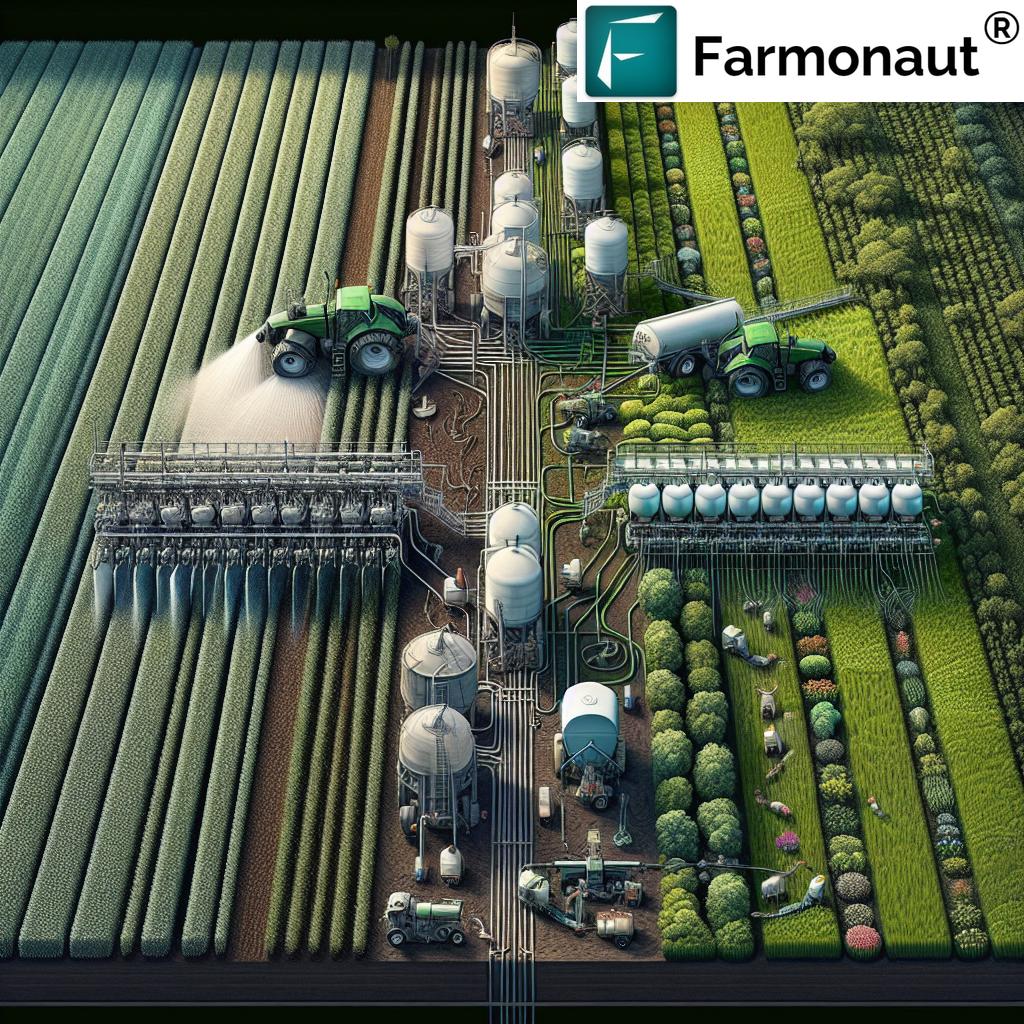Fruit Industry 2024: Trends & Secrets Shocking the World
The global fruit industry continues to astonish us with its remarkable growth, technological leaps, and transformative impacts across food security, the economy, and the environment.
Let us delve into the 2024 fruit industry landscape — exploring leading producers, economic powerhouses, technological game-changers, market trends, and the vital secrets shaping our world’s fruit basket.
Table of Contents
- Overview of the Global Fruit Industry
- Global Fruit Production and Leading Producers
- Fruit Industry Economic Impact
- Environmental Impact of Fruit Farming
- Technological Advancements in Fruit Agriculture
- Organic Fruit Market Trends & Consumer Preferences
- Challenges Facing the Global Fruit Industry
- Farmonaut: Precision & Sustainable Cultivation Solutions
- Top Global Fruit Producers & Production Trends, 2024
- Fruit Industry Future Trends & Outlook
- Farmonaut Subscriptions & API Access
- FAQ – Fruit Industry 2024
- Conclusion
Introduction: Overview of the Global Fruit Industry
The global fruit industry is a cornerstone of the agricultural sector, encompassing the cultivation, processing, and distribution of an extensive variety of fruits consumed worldwide. This industry does not merely contribute significantly to the global economy; it also plays a crucial role in food security and nutrition — impacting the diet and health of populations across continents.
In 2023, global fruit production exceeded 870 million tonnes, demonstrating the sector’s immense scale and importance. From tropical bananas and mangoes to temperate apples and kiwifruit, fruits are vital not just for dietary diversity, but also as key economic drivers. The cultivation, harvesting, and exports of fruits sustain millions of livelihoods, making them a staple in both developing and developed countries.
The fruit industry’s economic impact is profound—contributing over $1 trillion annually to the global economy. However, this thriving sector faces persistent and evolving challenges, from environmental impact of fruit farming (such as deforestation, water stress, and land degradation), to labor shortages and the need for sustainable farming practices. As we advance through 2024, understanding these complex dynamics is more critical than ever.
Before we explore the latest trends, secrets, and shocks in the global fruit industry, let’s visually and contextually set the scene with our first deep-dive.
Global Fruit Production and Leading Producers (2024)
Fruit production worldwide is experiencing both expansion and transformation, as new technologies, shifting trade patterns, and pressing environmental issues drive change.
Let’s examine some of the largest fruits, their major producing countries, and emerging production trends.
Oranges
In 2022, the world produced approximately 76 million tonnes of oranges, making it one of the most significant fruits cultivated and consumed worldwide.
Brazil led as the largest producer, accounting for roughly 22% of total orange production. Other leading producers included India, China, and Mexico — all of which leverage favorable climate conditions and robust agricultural infrastructure.
Kiwifruit
In 2023, global kiwifruit production reached 4.4 million tonnes, highlighting the growing popularity of this exotic fruit. China dominated as the world’s largest producer, contributing 55% of total production.
Significant contributors like New Zealand and Italy further established their reputations for quality exports and innovative cultivation practices.
Avocado: Mexico’s Global Stature
Mexico unambiguously stands out in the avocado market, supplying 45% of the international avocado trade, making it the dominant global supplier. The country’s unique environmental conditions, historic expertise, and global logistics positioning underpin its supremacy as both a major producer and exporter.
Other top fruits (such as bananas, apples, grapes, and mangoes) also showcase impressive production volumes distributed among countries like India, Brazil, Ecuador, China, and the United States.
Top Global Fruit Producers & Production Trends, 2024 (Estimated)
| Fruit Type | Major Producing Country | 2024 Est. Production (Million Tonnes) | 5-Year Production Trend (%) | Key Environmental Challenge |
|---|---|---|---|---|
| Bananas | India, China, Philippines | 120 | +4% | Water Scarcity, Monoculture Risk |
| Apples | China, USA, Poland | 88 | -1.8% | Pesticide Usage, Climate Variability |
| Oranges | Brazil, India, China, Mexico | 77 | +2.2% | Citrus Greening Disease |
| Grapes | China, Italy, USA | 73 | 0% | Water Stress, Fungal Diseases |
| Mangoes | India, China, Indonesia | 56 | +5.2% | Land Degradation, Pesticide Use |
| Kiwifruit | China, New Zealand, Italy | 4.5 | +3.6% | Soil Erosion, Water Scarcity |
| Avocado | Mexico, Peru, Colombia | 10 | +12% | Deforestation, Water Use |
These numbers illuminate a critical trend: global fruit industry production is not only about high yields but also about shifting cultivation patterns shaped by sustainability concerns and technological innovations.
Fruit Industry Economic Impact: Driving Prosperity Worldwide
The fruit industry economic impact cannot be overstated. This sector
- Serves as a major employment driver, providing income for millions globally
- Supports a wide range of activities: farming, harvesting, post-harvest processing, packaging, logistics, and distribution
- Boosts GDP in fruit-producing countries through exports reaching billions of dollars annually
- Powers rural economies by creating jobs and stimulating allied sectors
The avocado market Mexico exemplifies this economic engine. With Mexico supplying 45% of the international avocado markets, its avocado industry has become a substantial contributor to the national economy—driving job creation, international trade flows, and foreign exchange earnings. Major fruit exporters like Brazil, China, India, and New Zealand leverage fruit industry innovation to expand market access, diversify products, and respond rapidly to consumer demand fluctuations.
Fruit Industry Supports
- Millions of jobs in farming, supply, retail, and export sectors
- Sustainable livelihoods for smallholder and large-scale farmers alike
- Local and global food security and nutritional improvement
Environmental Impact of Fruit Farming: Deforestation, Biodiversity & Ecosystem Concerns
With growth comes responsibility. The environmental impact of fruit farming, especially in tropical regions, remains a critical concern for governments, industry stakeholders, and eco-conscious consumers.
- Deforestation is a direct consequence in several tropical countries, as forests are cleared to plant bananas, pineapples, mangoes, and other fruit trees
- This clearing endeavors to meet escalating global demand; however, it results in:
- Biodiversity loss (due to habitat destruction)
- Ecosystem disruption and land degradation
- Increased carbon emissions from loss of forest cover
- Water scarcity and soil erosion—especially for fruits like avocado that demand significant water inputs
- Pest resistance and pollution from chemical pesticide usage further strain the environment
The challenge for the modern fruit industry is to find a balance where sustainable fruit cultivation aligns with economic growth, food security, and biodiversity protection.
For agribusinesses seeking to systematically assess and reduce their carbon footprint, Farmonaut’s Carbon Footprinting solution provides data-driven insights into on-farm emissions and resource optimization. This not only helps businesses meet environmental regulations but also reinforces sustainability commitments to global consumers.
Technological Advancements in Fruit Agriculture (2024): Robotics, AI & Precision Farming
2024 witnesses rapid growth in the technological advancements in fruit agriculture. New-age tools are addressing critical sectoral challenges:
- Robotic harvesting in agriculture: Robotics are being developed to handle labor-intensive tasks like picking, thinning, and pruning in orchards and vineyards. These systems mitigate labor shortages and raise productivity.
- Robotic pollination: For apple orchards, cutting-edge pollination robots can detect 91% of flowers and pollinate 84% of targets. This innovation addresses declining bee populations, boosting fruit set in high-value crops.
- Precision AI-driven systems: From irrigation to disease prediction, AI enables farmers to target inputs efficiently, minimizing waste and maximizing output.
- IoT and satellite imagery: Precision platforms use real-time crop health monitoring, supporting better decision-making for farmers worldwide.
Farmonaut’s Large Scale Farm Management platform empowers both individual farmers and large agribusinesses to monitor crop health, schedule irrigation, and track resources, all via satellite and AI. The result? Higher yields, reduced costs, and actionable insights accessible on mobile and web applications.
For organizations developing custom agritech tools, Farmonaut also provides robust API access for seamless integration of satellite and weather data — learn more at Farmonaut’s API Portal or view the Developer Docs.
Organic Fruit Market Trends & Consumer Preferences: Shaping Demand in 2024
As the global fruit industry evolves, market trends and consumer preferences redefine how fruits are farmed, processed, packaged, and delivered.
- Organic fruit market trends indicate growing demand for fruits produced without synthetic fertilizers or pesticides. Consumers seek fresh, healthy, chemical-free produce.
- Sustainability and fair-trade labels increasingly influence purchasing patterns, with buyers willing to pay premium prices for ethically produced and traced goods.
- Value-added fruit products (dried fruits, fruit snacks, beverages) are in greater demand as consumers pursue convenience and longer shelf life.
- Blockchain-based traceability in food supply chains reassures consumers about the origin, safety, and ethical sourcing of their favorite fruits.
To meet stringent transparency requirements in the food industry, Farmonaut’s Traceability platform employs blockchain to trace products from farm to retail, enabling brands to offer verifiable proof of ethical and sustainable sourcing.
Challenges Facing the Global Fruit Industry (2024 & Beyond)
Despite astonishing success, the fruit industry faces formidable challenges that threaten both growth and sustainability. These include:
- Climate change — unpredictable weather, increased droughts, and flooding can devastate fruit crop yields and quality
- Pest and disease outbreaks — changing climates favor the spread of aggressive pests and novel plant diseases
- Labor shortages — declining rural populations and increased competition for workers strain cultivation and harvesting operations
- Supply chain disruptions — from global transportation bottlenecks to geopolitical instability, fruit exporters must navigate volatile international trade dynamics
- Post-harvest food waste — large volumes of fruits are lost or discarded at the household and retail levels
- Resource depletion — water stress, soil fertility loss, and overreliance on chemical inputs threaten future productivity
Tackling these challenges requires investment in innovation, adoption of resilient farming systems, and robust policy frameworks.
Smallholders and agribusinesses can mitigate risks using Farmonaut’s Crop Loan and Insurance Verification. By validating crop and acreage information via satellite, farmers can access credit and insurance with greater ease, while reducing the risk of fraud for financial institutions.
To streamline operations further, Farmonaut Fleet Management offers advanced solutions to coordinate vehicles, reduce fuel costs, and improve safety in large farming and distribution operations.
Farmonaut: Advanced Technology for Precision & Sustainable Fruit Cultivation
As precision agriculture takes center stage, Farmonaut emerges as a leader in providing accessible, affordable solutions to farmers, agribusinesses, governments, and food companies across the world. Our mission is to make data-driven, precision farming a reality for every stakeholder in the agricultural sector.
Here’s how our core technologies empower the global fruit industry:
- Satellite-Based Crop Health Monitoring: Using multispectral satellite images, we help monitor vegetation health (NDVI), detect water stress, and track crop development, empowering better irrigation and crop management decisions for fruit growers.
- Jeevn AI Advisory System: AI-driven crop advisory delivers personalized, real-time insights and precision recommendations on fertilization, pest management, and risk mitigation for orchards, plantations, and mixed farms.
- Blockchain-Based Product Traceability: From mangoes and oranges to avocados, every fruit’s journey from field to fork can be transparently tracked, enhancing consumer trust and enabling compliance in exports.
- Resource & Fleet Management: Comprehensive logistics tracking and resource use analytics help reduce operational costs across supply chains, especially for major fruit distributors and exporters.
- Carbon Footprinting and Environmental Analysis: Real-time tracking of emissions enables fruit producers to identify sustainability gaps, optimize inputs, and communicate progress to regulators and buyers alike.
With cost-effective packages, a user-friendly mobile & web app, and a scalable API, Farmonaut is proud to make precision agriculture affordable and accessible for farmers worldwide. This drives sustainable growth in the most vital global fruit markets, from India and Brazil to Mexico and New Zealand.
Looking for plantation or forestry-specific crop advisory? Try Farmonaut’s Crop & Plantation Advisory today.
Farmonaut Subscriptions & API Access
Our flexible, subscription-based model ensures that farmers, government agencies, and corporates of all sizes can tailor their use of Farmonaut’s services — whether through web app, mobile app, or seamless API integration.
Fruit Industry Future Trends & Outlook: What Lies Ahead?
The future of the global fruit industry is set for continuous transformation—shaped by:
- Precision and digital technologies — satellite, AI, and data platforms will expand, unlocking new efficiencies and enabling targeted interventions.
- Sustainable fruit cultivation — eco-friendly practices, water conservation, regenerative farming, and decarbonization will move to the forefront, addressing pressing environmental considerations.
- Consumer-driven innovation — demand for organic, high-quality, and ethically labeled fruits will reshape product development and marketing strategies globally.
- Supply chain transparency — blockchain, IoT, and traceability tools will become standard in international fruit trade.
- Policy and infrastructure evolution — governments and private sectors will invest in research, risk mitigation, and resilience to counter unpredictable weather and labor disruptions.
To thrive in this evolving landscape, stakeholders across the industry must embrace innovation, prioritize sustainability, and adapt to market volatility. We, as participants in the fruit industry, have both an opportunity and a responsibility to advance solutions that nourish our planet, protect livelihoods, and delight consumers everywhere.
FAQ – Fruit Industry 2024
Conclusion: A Dynamic Industry in Transformation
The global fruit industry stands at an inflection point — balancing unprecedented demand with the imperatives of environmental stewardship, technological adoption, and resilience.
As we have explored, the sector’s leading producers, economic power, market trends, and challenges all underscore the necessity for sustainable fruit cultivation and precision agriculture solutions. Farmonaut is proud to support this journey for growers, agribusinesses, governments, and food innovators worldwide.
Through the convergence of advanced technologies, transparent supply chains, and eco-friendly practices, we can ensure the fruit industry continues to contribute to food security, nutrition, rural employment, and sustainable growth for generations to come.
Ready to power up your fruit farm or agribusiness with precision technology? Download Farmonaut’s App or explore our API now:

